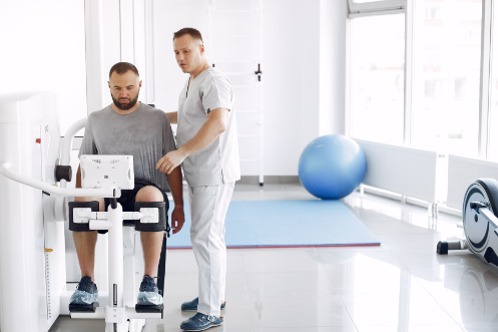
Cardiac Rehabilitation
The World Health Organization (WHO) defines cardiac rehabilitation (CR) as “the sum of activities and interventions necessary to ensure the best physical, mental, and social conditions so that patients with chronic or post-acute cardiovascular disease may, by their own efforts, preserve or resume their proper place in society and lead an active life.” CR is a thorough model of care that consists of well-established core elements, such as patient education, psychosocial counseling, risk factor reduction, and behavior modification, with the aim of enhancing patients’ quality of life and assisting in lowering the likelihood of developing future heart issues.
A multidisciplinary team, frequently led by a doctor like a cardiologist, provides CR. Nurses assist patients in lowering medical risk factors including diabetes, high cholesterol, and blood pressure. Resistance training is a component of the personalized and organized workout program that physiotherapists and other fitness experts create. A dietician assists in developing a healthy eating plan. A social worker or psychologist can support patients in their efforts to stop using tobacco by offering to counsel or recommending alternative effective therapies. They can also help patients reduce stress and manage any detected psychological disorders. Support for returning to work is also available. Patient care is a top priority in CR programs.

